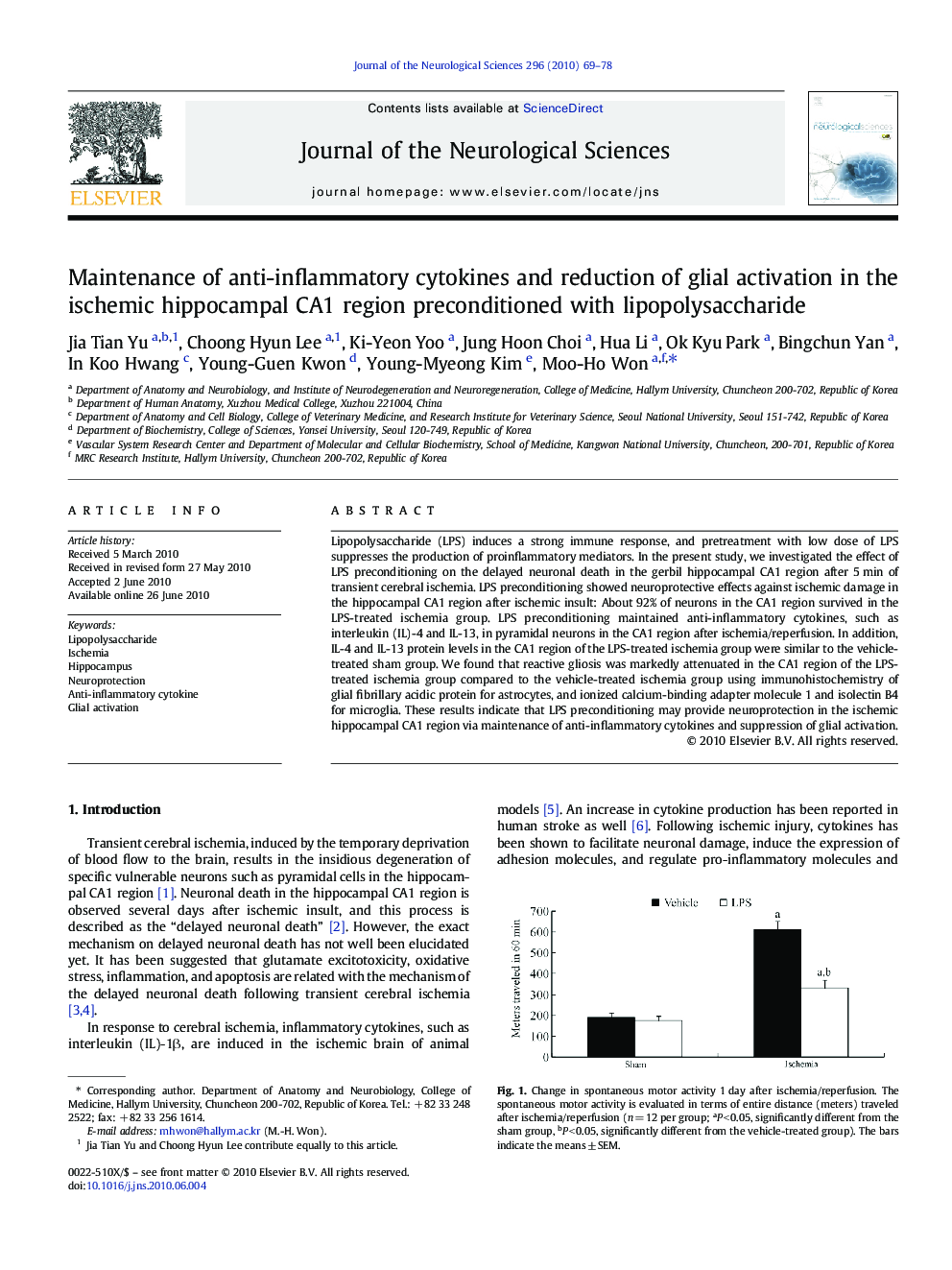| Article ID | Journal | Published Year | Pages | File Type |
|---|---|---|---|---|
| 8283035 | Journal of the Neurological Sciences | 2010 | 10 Pages |
Abstract
Lipopolysaccharide (LPS) induces a strong immune response, and pretreatment with low dose of LPS suppresses the production of proinflammatory mediators. In the present study, we investigated the effect of LPS preconditioning on the delayed neuronal death in the gerbil hippocampal CA1 region after 5Â min of transient cerebral ischemia. LPS preconditioning showed neuroprotective effects against ischemic damage in the hippocampal CA1 region after ischemic insult: About 92% of neurons in the CA1 region survived in the LPS-treated ischemia group. LPS preconditioning maintained anti-inflammatory cytokines, such as interleukin (IL)-4 and IL-13, in pyramidal neurons in the CA1 region after ischemia/reperfusion. In addition, IL-4 and IL-13 protein levels in the CA1 region of the LPS-treated ischemia group were similar to the vehicle-treated sham group. We found that reactive gliosis was markedly attenuated in the CA1 region of the LPS-treated ischemia group compared to the vehicle-treated ischemia group using immunohistochemistry of glial fibrillary acidic protein for astrocytes, and ionized calcium-binding adapter molecule 1 and isolectin B4 for microglia. These results indicate that LPS preconditioning may provide neuroprotection in the ischemic hippocampal CA1 region via maintenance of anti-inflammatory cytokines and suppression of glial activation.
Keywords
Related Topics
Life Sciences
Biochemistry, Genetics and Molecular Biology
Ageing
Authors
Jia Tian Yu, Choong Hyun Lee, Ki-Yeon Yoo, Jung Hoon Choi, Hua Li, Ok Kyu Park, Bingchun Yan, In Koo Hwang, Young-Guen Kwon, Young-Myeong Kim, Moo-Ho Won,
